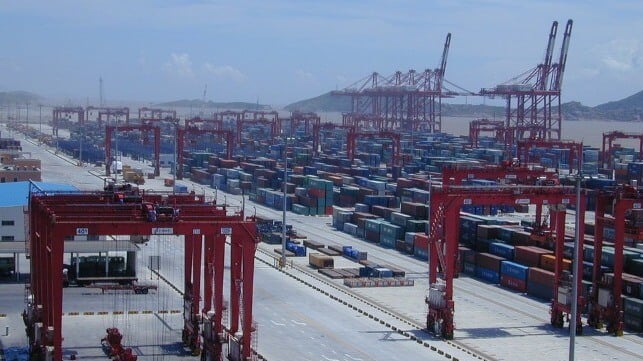Jobs
Democrats wished the election was about jobs. Trump’s win showed it was about prices.
- While Democrats touted job growth under Biden, Trump won over voters facing high prices.
- A BI analysis found real wages declined in states that had the biggest swings toward Trump.
- Counties with higher costs of living also leaned more toward Trump than they did in 2020.
High prices dominated voters’ minds this election cycle — and they likely played a key role in handing President-elect Donald Trump his victory.
On the campaign trail, Trump clashed with President Joe Biden and Vice President Kamala Harris over their handling of the economy.
Unemployment sharply fell during the first year of Biden’s term and has remained low. Biden oversaw the creation of 16 million new jobs during his term as of October, and his administration frequently touted that growth.
But inflation also spiked during the early years of Biden’s presidency, before its pace gradually slowed, creeping toward the Federal Reserve’s 2% target.
Trump told voters he would provide relief to their wallets across the board, from groceries to housing.
“I am promising low taxes, low regulations, low energy costs, low interest rates, secure borders, low, low, low crime and surging incomes for citizens of every race, religion, color, and creed,” Trump said during remarks in September. “My plan will rapidly defeat inflation, quickly bring down prices, and reignite explosive economic growth.”
That promise resonated: Real, or inflation-adjusted, wage growth — or lack thereof — across the country shows a possible reason why.
Many states where Trump most improved his margins saw large declines in real wages under Biden. Increases in wages were more than offset by higher living costs in these states.
Counties with higher costs of living also voted for Trump more than they did in 2020.
How Trump won on prices
Business Insider looked at how average hourly earnings for private employees have changed in each state from January 2021, when Biden took office, to this past September. BI adjusted 2021 amounts using Census-division-level inflation to understand how much real wages have changed across the US. Rhode Island had the highest real wage growth, just one of around a dozen states that saw an increase.
Using the 2020 and 2024 share of Trump votes by state reported by The New York Times, BI found that states with bigger real wage drops tended to have bigger shifts to Trump than other states.
Some of the biggest swings came in heavily blue, expensive states. New York, which saw an 8.3% real wage decline and which has a high cost of living, also had a 6.5 percentage point increase in Trump’s vote share from 2020 to 2024. Maryland, which saw an 11.2% real wage decline, swung toward Trump in 2024 by 5 percentage points.
The nation’s capital was an outlier. Real wages massively fell in costly Washington, DC; even before adjusting for inflation wages were roughly flat. While Trump did see a small uptick in the share of DC votes for him in 2024, it was one of the lowest percentage point increases based on BI’s analysis.
The cost of living and unemployment levels also factored into voters’ feelings as they headed to the polls. Jed Kolko, an economist who served in the Biden administration, wrote in Matthew Yglesias’ “Slow Boring” column that higher unemployment levels in US counties over the past year matched a swing in county votes toward Trump.
The same goes with the cost of living: “Counties with a higher cost of living swung more toward Trump in 2024 relative to 2020. Expensive counties tend to be blue places like big coastal cities; Harris won most of these pricey counties, but by a smaller margin than Biden did in 2020, when controlling for demographics, education, and density,” Kolko wrote.
Kolko also found that local job growth did not have a significant relationship to voting patterns, while local federal spending from Biden’s signature infrastructure and industrial investment programs did not appear to impact county election results either.
Some experts have said that Trump’s tariff policies would stoke inflation and raise consumer prices. Trump has instead argued that his policies would help with costs, promising voters they will see improvements once he takes office.
“Prices will come down,” Trump said during an August speech. “You just watch: They’ll come down, and they’ll come down fast, not only with insurance, with everything.”


.jpg)





